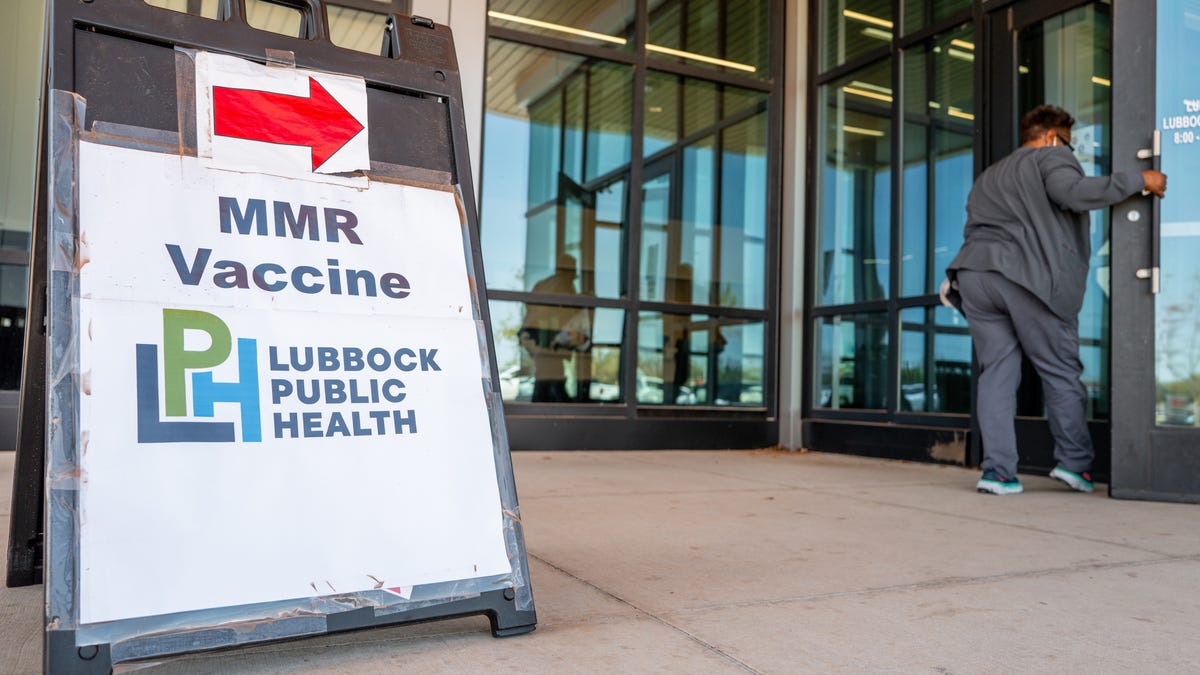CDC reports over 1,000 measles cases in 2025, Texas hardest hit state
With less than 5% of infected individuals in Texas vaccinated, health officials highlight the urgent need for increased measles immunization rates in communities.
Scripps News
WASHINGTON, May 14 (Reuters) – Americans worry about the Trump administration’s ability to contain an ongoing outbreak of measles, while the vast majority of them believe that vaccines for the disease are safe, according to a new Reuters/Ipsos poll.
Just 31% of respondents in the two-day poll, which closed on May 13, agreed with a statement that the administration is handling the measles outbreak responsibly, while 40% disagreed and the rest were unsure or did not answer the question.
The United States is currently facing its largest single outbreak of measles in 25 years, with the number of cases crossing the 1,000 mark last week.
The measles, mumps and rubella vaccine prevents 97% of cases after two doses and high adoption of the MMR vaccine resulted in the disease being declared eliminated in 2000 by the World Health Organization. Nonetheless, vaccination rates among U.S. children have fallen in recent years, which experts attribute to vaccine skepticism and misinformation.
The vast majority of Americans still see the MMR vaccine as safe. Some 86% of respondents in the latest Reuters/Ipsos poll said it was safe for children, a marginally higher share than the 84% who said the same in a Reuters/Ipsos poll conducted in May 2020, in the early months of the COVID pandemic. Some 13% of respondents in the latest poll said the vaccine was not safe for kids, up marginally from 10% five years earlier.
The latest poll, which surveyed 1,163 U.S. adults nationwide, had a margin of error of 3 percentage points.
Infectious disease experts worry that comments from Secretary for Health and Human Services Robert F. Kennedy Jr., who has offered mixed messages about the severity of the disease and the safety and efficacy of the vaccine, may further exacerbate vaccine hesitancy.
Dr. Sean O’Leary, chair of the Infectious Diseases Committee of the American Academy of Pediatrics, said he was encouraged by the high level of confidence in the MMR vaccine given the messaging from the Trump administration.
“I do feel a bit better knowing that the public is recognizing that a lot of the information they’re seeing right now from the administration is not accurate,” O’Leary said.
Kennedy, who became the nation’s top health official in February, says he is not opposed to vaccines, which he says are the best way to prevent measles.
“Secretary Kennedy and HHS have deployed thousands of MMR vaccine shots and have repeatedly promoted measles vaccination in media interviews, social media posts, and public statements,” White House spokesman Kush Desai said in an email. “HHS is even investing $500 million in an ambitious universal vaccine project under Secretary Kennedy’s leadership.”
Duty to vaccinate children
Some 76% of respondents in the Reuters/Ipsos poll – including majorities of both Republicans and Democrats – agreed with a statement that it was the duty of all parents to vaccinate their children against measles. One in four Republicans, however, disagreed.
Vaccination rates have been declining in the United States.
In the 2019-2020 school year, 95.2% of kindergarteners nationwide completed their two-dose MMR vaccine series, above the 95% threshold needed to protect unvaccinated individuals against the highly contagious disease through herd immunity, according to the Centers for Disease Control and Prevention.
Measles vaccination rates dropped to 92.7% in 2023-2024, according to the CDC.
Within states, pockets of unvaccinated populations have even lower vaccination rates. In Gaines County, Texas, the epicenter of an outbreak that has infected more than 700 people and killed two unvaccinated children, only 82% of kindergarteners are fully vaccinated.
The Texas outbreak has spread to Kansas, Oklahoma and New Mexico, where one adult died from the disease.
Dr. Amesh Adalja, a senior scholar at the Johns Hopkins Center for Health Security, said most Americans are comfortable with the MMR vaccine, which is reflected in high vaccination rates.
The problem, he said, is that national vaccination numbers can mask pockets of very low vaccination coverage.
“You really have to look at these pockets,” Adalja said. “That’s what makes us very vulnerable.”
Some 55% of respondents in the Reuters/Ipsos poll said they were concerned about measles outbreaks – on par with the number who worried about being laid off from their jobs and well below the 80% who worried about rising inflation.
Just 32% of respondents in the poll said they thought the current administration would stop the current outbreak and prevent measles from becoming a common illness again.
